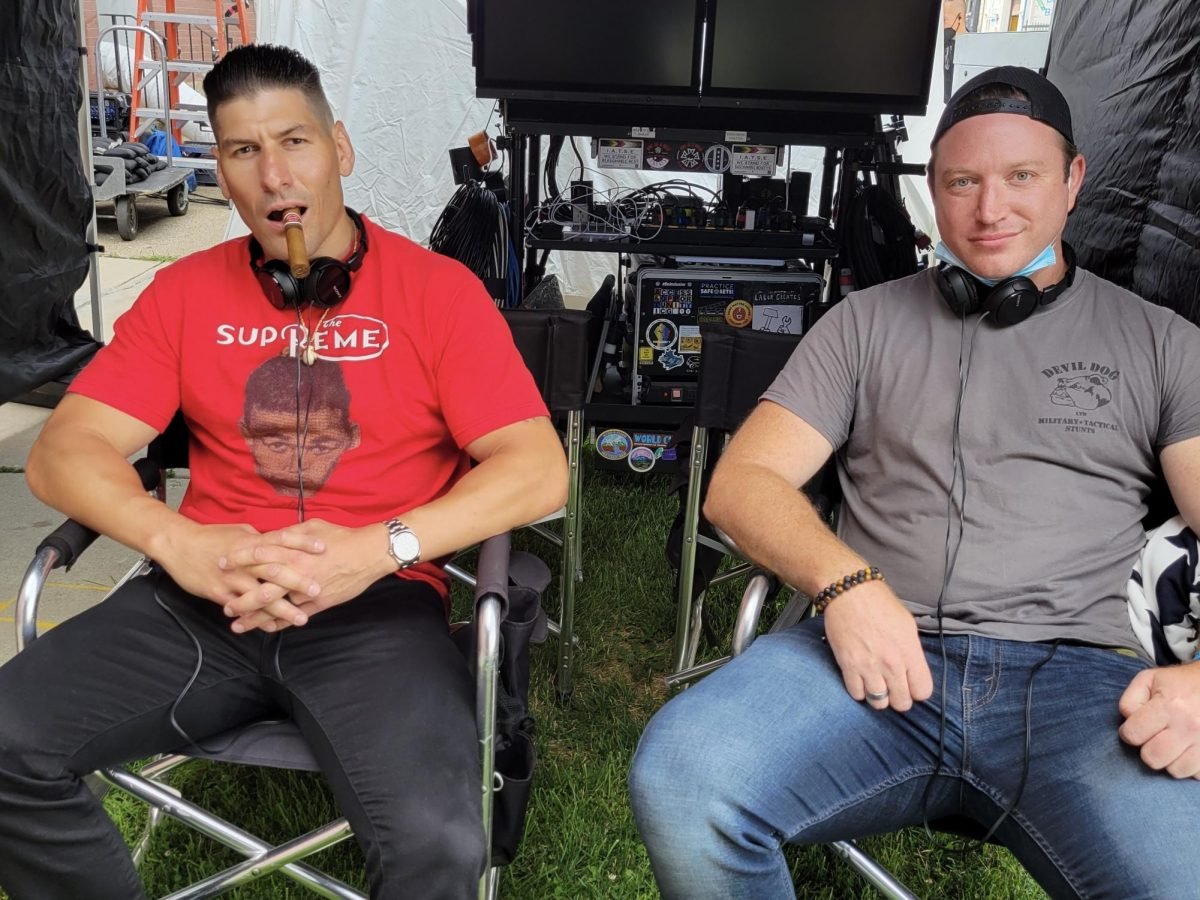Screenwriter Sammy Horowitz was incarcerated for almost a decade. He said he spent three of those years in the recently closed Stateville Correctional Center, just an hour-long drive from Evanston.
About 15 years later, after stints in professional boxing and stunt work, Horowitz said he willingly returned to Stateville with his writing partner Adam Pasen (Weinberg M.A. ‘08) to teach a workshop in screenwriting.
That workshop inspired the Justice-Impacted Writers Project, a six-month fellowship under the Northwestern Prison Education Program. Classes began in early January. Every week, Horowitz and Pasen meet with eight men incarcerated at the Sheridan Correctional Center to help them develop screenplays.
Everyone developed a project idea during the first class, which they will work on for the duration of the class, Horowitz said. About half of the cohort wanted to write dramatic scripts. Others leaned toward comedy. One pair of writing partners came up with a concept Horowitz called “Shameless-esque.”
“They all have a completely different perspective of what they’re bringing into their stories,” Horowitz said. “You’re not just getting prison stuff. You’re getting so many different facets of their lives.”
Horowitz and Pasen have written together for four years and met through Horowitz’s wife, who attended college with Pasen. The duo said they noticed people in Hollywood often use buzzwords about capturing “authenticity” and “lived experience,” but rarely achieving this goal.
Incarcerated writers bring a variety of firsthand, authentic experiences, Horowitz said.
“It doesn’t get more ‘lived’ than guys in prison right now,” Horowitz said. “They’re still living it.”
Horowitz himself serves as an example. He said he thrives when he writes about gangs, drugs and prison, all subjects he personally experienced.
Pasen, who grew up in a suburb, said his partnership with Horowitz exemplifies how people of different backgrounds can collaborate to create a stronger script.
“The most trouble I ever got in was getting busted for breaking curfew one time, and they let me go,” Pasen said.
When Horowitz heard about NPEP through a friend, he said he could not believe they were teaching college-level courses at Stateville.
It was the same place where he spent up to 23 hours per day in solitary confinement. It was also where five correctional officers beat him in 2005, resulting in a lawsuit, he said.
Still, he said he wanted to help with NPEP. He contacted the program’s founding director, Weinberg Prof. Jennifer Lackey, and they came up with the idea of a screenwriting workshop.
Horowitz said he never imagined he would return to a prison.
“It was tough walking in,” he said. “I was shaking a little bit.”
But the workshop itself was “one of the most gratifying experiences” of his life, he said. During the three hours, he and Pasen helped 42 men develop plot points for feature films.
For Pasen, who said he thought he would become a professor after graduating college, teaching came naturally.
“It was like a fish returning to water,” he said.
Lackey said she can only select a few out of the numerous ideas she receives for NPEP initiatives due to limited bandwidth. She said JIWP stood out due to Horowitz’s personal experience with incarceration and his subsequent success.
The goal of combating recidivism, or the tendency of a convicted criminal to reoffend, by assisting writers with the transition out of prison also set the project apart from others, she said.
“I was especially impressed with how Sammy wanted to focus on people coming home,” Lackey said.
Throughout the program, Horowitz and Pasen plan to invite industry professionals to speak with fellows. These include Barbie Kligman, the creator and showrunner of the television series “Doc,” and Gary Lennon, executive producer of the crime series ‘Power Book IV: Force.”
Horowitz said he hopes connections with professionals can help establish future careers for incarcerated individuals.
“So that when they get out, they have a lifeline,” he said.
Email: desireeluo2028@u.northwestern.edu
Related Stories:
— NPEP virtual panel addresses LGBTQ+ intersectionality in the criminal justice system
— What’s New at NU: How the Northwestern Prison Education Program changes lives







